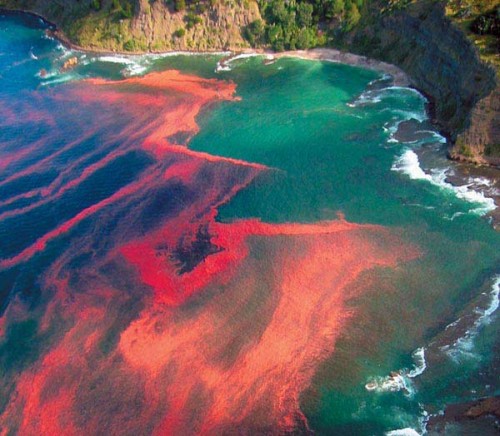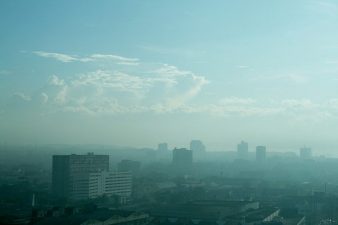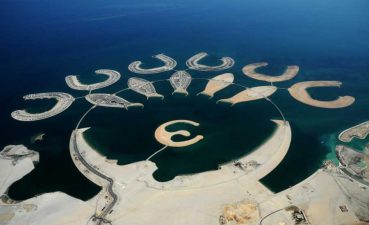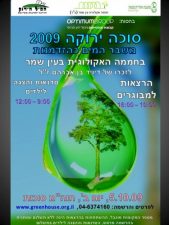A condition of child blindness called retinitis pigmentosis afflicts about one in every 3000 births. A new treatment pulled out of a Sinai lake is now an orange algae powder pill: it can quadruple the vision improvement in some people, finds new research from Israel.
Algae in its various forms and colors is not only a superfood (read here about a DIY kit for spirulina), it is also lauded as a great potential for algae-based biofuel.
Now researchers at the Sheba Medical Center in Tel Hashomer Hospital in Israel have found that orange algae, fed to people with retinitis pigmentosis, can improve vision loss, according to Haaretz.
Retinitis pigmentosa is a hereditary disease which leads to a breakdown of photoreceptor cells in the eye’s retina. Over time the sufferer faces a narrowing field of vision, then eventual loss of night vision and colors. Sight may be totally lost. It is considered incurable but treated with vitamins.
Prof. Ami Ben Amotz from Sheba discovered the orange algae dunaliella bardawil when he was on reserve military duty on Lake Bardawil on the northern coast of the Sinai Peninsula at about 50 Km, near El-Arish City, when it was under Israel control. The lake is actually a shallow lagoon. He noticed a strange orange hue covering the lake, and brought some samples back to the lab. The single-celled plants he found were very rich in the anti-oxidant 9-cis beta-carotene. Over the years it has been studied for its high lipid content.
Eventually the idea was raised to use it to treat the eye disorder.
Sheba’s Dr. Yigal Rotenstreich turned the slimy orange algae into a powdered-based pill and gave it to seven people suffering from night blindness. Their vision improved.
“A test known as ERG checks the electrical function of retinal cells that are stimulated by light, and serve as an objective measure of improvement,” Rotenstreich said to Haaretz.
Recently the study was expanded to 30 people who took the pills over 90 days using the algae pill and a placebo. Thirty-four percent of the patients significantly improved their vision with the pill, and in some there was as much as a quadrupling effect in their field of vision.
No effects were found in the placebo group. A placebo looks like the drug but in fact contains no active ingredient.
Algae is full of fats, so intake of the pills may cause loose stools. There are no other side-effects, and it is likely that no big drug company can seize this research for its own, since it is based on something that can be grown in algae ponds. Companies could invest money in refining the algae and improving its lipid content.
For those interested to replicate the research, the results were published in the May issue of JAMA Ophthalmology, by the American Medical Association.
“The results of the study are encouraging, because until now there was no known treatment that improved the vision of those suffering from retinitis pigmentosa,” said Rotenstreich.
Dunaliella bardawil is applied in other directions at Sheba: for psoriasis, diabetes, and in helping to raise the HDL (good) cholesterol in the blood.
A Japanese firm is growing the specific strain of algae in Eilat, Israel to increase fat content, but perhaps a trip to Sinai is in order for scientists around the world to collect orange algae samples to start their own grow ponds.
How to get there? Lake Bardawil (Arabic: بحيرة البردويل Buhayrat al Bardawil or سبخة البردويل Sabkhat al Bardawil) is a large, very saline lake in Egypt on the north coast of the Sinai Peninsula. The lagoon is shallow (reaching a depth of about 3 metres) and is separated from the Mediterranean Sea by a narrow sandbar.
There have been other papers published on the fatty content of this algae, as well of reports on the diversity of species including algae in this highly-saline lagoon.
No one company can own the rights to develop this algae into a neutraceutical, so come on Egyptians – now is the right time to get your acts together and start cultivating a home grown algae-based product! If you look to your neighbours in the north, this can easily be done in otherwise “useless” desert land.





Magnificent beat ! I would like to apprentice while you
amend your web site, how can i subscribe for
a blog web site? The account helped me a acceptable deal.
I had been a little bit acquainted of this your broadcast
provided bright clear concept
How did they make the leap to apply to their eyes??? Why eyes & not something else?
Read the story…